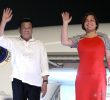CAGAYAN DE ORO CITY, Philippines – Hopes are high for Congress to approve the extension of the Bangsamoro Transition Authority (BTA) until 2025 for it to have some leeway to respond to the exacerbating problems resulting from COVID-19 and establish institutions for self-governance in the Bangsamoro region.
The group Insider Mediators, a multisectoral group supporting the Bangsamoro Autonomous Regions in Muslim Mindanao (BARMM), is optimistic the proposed legislation will get its approval before the national elections next year.
Under Republic Act 11054, the law that established the BARMM, the BTA acts as the autonomous region’s interim governing body. BTA’s appointed leaders, especially those sitting in the BARMM parliament, are expected to step down in 2022. In that same year, an election will be held paving the way for new elected members of parliament to sit and the BTA to be dissolved.
Agreements
An extended term for the BTA, IM said, would allow the Moro Islamic Liberation Front (MILF) and the Philippine government “to fulfill their respective end of the bargain and implement the important components of the signed agreements, especially the aspect of normalization.”
Lawmakers in both houses of Congress have filed proposed bills that would extend the BTA until 2025. These legislators include Senators Aquilino Pimentel III and Richard Gordon, who filed Senate Bills 2019 and 2025, respectively, seeking to amend Article XVI, Section 13 of RA 11054.
At the Lower House, those who filed the same but separate proposed legislation, are Representatives Loren Legarda, Esmael Mangudadatu, Ferdinand Martin Romualdez, Mohamad Khalid Dimaporo, and Isidro Ungab.
Normalization
Lawyer Omar Sema, BARMM parliament deputy speaker and Moro National Liberation Front (MNLF) legal counsel, said, “we believe that the extension would grant both parties to comply with their obligations under the Comprehensive Agreement on the Bangsamoro particularly in the process of normalization.”
Sema said the three-year extension would be enough for the BTA to complete enacting statutes needed for the BARMM to function effectively.
At present, the Bangsamoro parliament has already enacted the Bangsamoro administrative and civil service codes, with education and electoral codes waiting for deliberation and approval.
Sema said they need more time to craft the electoral code; adding three years is enough to craft pending laws.
Electoral codes
“We believe that the electoral code is the instrument that will complete the democratic process we are envisioning in 2022, but, of course, we cannot ascertain it will be passed within this year as there are provisions we need to iron out.”
He said the BTA still needs to consult with the communities within the BARMM.
Sema said people must understand that there are three kinds of elections the electorate in the Bangsamoro must participate in: the parliamentary party system election, parliamentary district election, and sectoral election.
Right now, he said, there is no law that supports these kinds of elections, that is why the BTA is requesting for more time to finish crafting the electoral code and other laws in the Bangsamoro.
Musa Sanguila, IM member and regional coordinator of the United Religions Initiative for Southeast Asia and the Pacific, said the transition extension will give time to those involved in the armed conflict in the past to return to the authority and join the mainstream society.
Archie Buaya, IM member representing the indigenous peoples (IP), said they support the extension to address issues and concerns on the sectors in the BARMM, specifically the IPs. (davaotoday.com)
Bangsamoro, Bangsamoro Autonomous Regions in Muslim Mindanao, Bangsamoro Transition Authority, duterte, Mindanao









